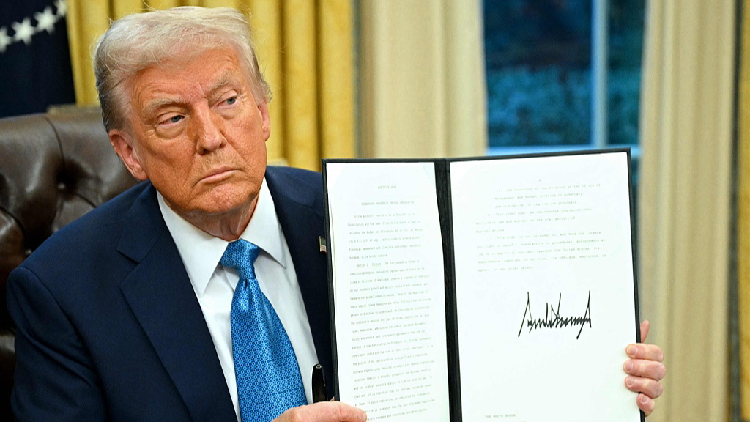Nations globally implement strategies to counteract Trump's tariffs
Trump's political proposal for increased tariffs embodies his firmly rooted "America First" ideology, which poses challenges not only to global trade but also to the advancement of the United States.

On January 21, US President Donald Trump announced to the media at the White House that he would impose a 25 percent tariff on all imports from Mexico and Canada starting February 1. This decision was anticipated, as Trump had consistently promised during his campaign to implement such punitive tariffs on Mexico if he won.
Trump's proposal for additional tariffs embodies his "America First" ideology, which poses risks not only to global trade but also to the United States' own progress. Countries like Mexico, Canada, and various European nations have vocally opposed these tariff threats and pledged to retaliate. Mexican President Claudia Sheinbaum warned that Mexico would respond with countermeasures if the tariffs were enacted, potentially damaging bilateral trade and harming both economies. Canadian Foreign Minister Mélanie Joly indicated that a 25 percent tariff on Canadian goods would ultimately increase costs for American consumers, emphasizing that Canada is prepared to impose tariffs on American products such as orange juice, toilets, and specific steel items. In response, both Canada and Mexico announced their retaliation, which could severely impact North America's automotive sector and job market, hindering economic growth across all three nations.
As the US has increasingly turned to tariffs in recent years, global discontent has grown. Many nations are devising long-term strategies to reduce their reliance on the US market and protect their trade and economic security. The European Union, a traditional trade partner of the US, is accelerating the integration of its internal market while also pursuing free trade agreements with other economies to diversify its trade risks. In December 2024, European Commission President Ursula von der Leyen revealed that the EU had finalized a long-awaited trade agreement with Mercosur, a regional integration initiative in South America involving Argentina, Brazil, Paraguay, and Uruguay, which had been in negotiation for over two decades. This agreement, covering a free trade zone of more than 700 million people, is projected to save the EU around 4 billion euros in tariffs in its first year once implemented.
In light of this shifting international landscape, China continues to deepen its reforms and open its markets, producing significant results. In foreign trade, China has been advancing the Belt and Road Initiative. This not only expands the global presence of its products but also offers development opportunities to other countries and promotes global trade growth. From December 2024, China has adopted a zero-tariff policy on goods from the world's least-developed countries that maintain diplomatic relations with it, supporting their economic advancement. Internally, China is optimizing its industrial structure, enhancing domestic demand, and nurturing new quality productive forces, leading to the emergence of new drivers of economic growth. During the 2025 Spring Festival Gala, audiences were captivated by robots in red floral jackets performative displays, highlighting China's technological progress.
Looking ahead, China is committed to collaborating with peace-loving nations to resolve disputes through multilateral channels, advance the world towards a multipolar balance in an orderly and fair manner, and promote inclusive and equitable economic globalization, thereby establishing a robust foundation for global peace and development.
Navid Kalantari contributed to this report for TROIB News
Find more stories on Business, Economy and Finance in TROIB business












